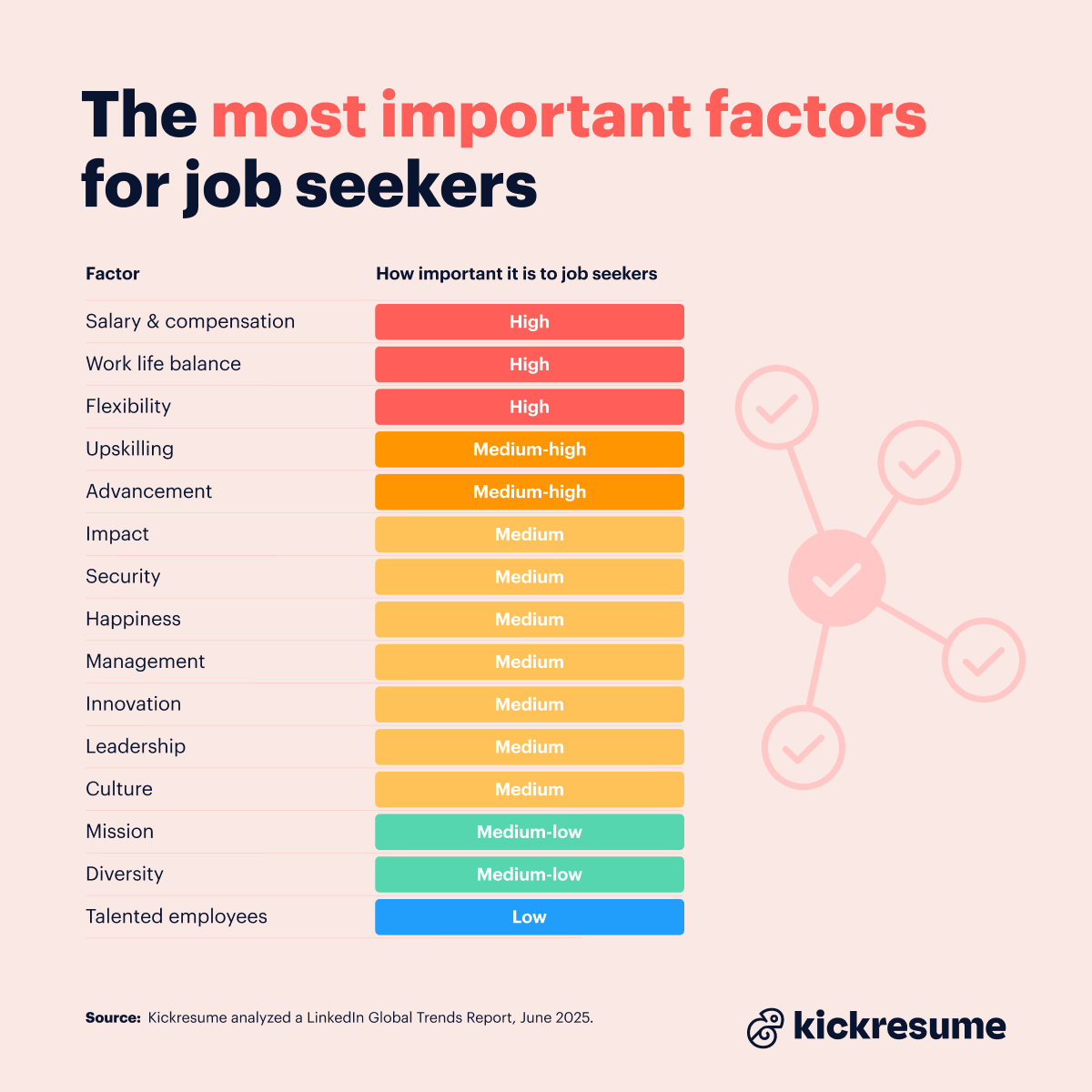What are the priorities for each generation in the workplace?

Salary and compensation may be the top priority among jobseekers, but a new report has found that the employment demands of candidates can differ by generation.
Kickresume recently analysed findings from LinkedIn's Global Talent Trends report to find that salary and compensation are the most significant factors jobseekers consider before finally accepting a job offer.
Among the other factors high on their list is a healthy work-life balance and flexibility, according to the report.

Priorities by generation
But these significant decision drivers vary by generation, Kickresume found.
Gen Zs value salary and flexibility above all else, with learning and development being the third-most important factor that comes into play with their decision-making.
Millennials prioritise work-life balance when looking for a new job, according to the report. This is followed by learning and development, and a sense of purpose at work.
Gen X employees heavily consider flexibility and work-life balance, the report said, citing these workers' responsibilities towards their families.
"This generation appreciates flexibility in their work schedule the most, as well as autonomy within their roles," Kickresume's report read.
"Gen X's main priority is whether their job can fit around their busy family lives, like caring for their young children and ageing parents."
For Baby Boomers, their top considerations when looking for work include job stability, financial security, as well as a quality healthcare plan.
"This generation is motivated by retirement and healthcare benefits offered by employers, and is the generation least concerned about flexible working," the report said.
How can HR accommodate diverse needs?
The variety in employees' demands can be a challenge for HR leaders, who have to accommodate the needs of a multigenerational workforce.
BetterUp Inc., a coaching platform, said organisations should consider rethinking their benefits given that age can influence what matters most to workers.
"Employee feedback surveys and in-depth exit interviews are great ways to ensure that everyone in a multi-generational workplace has what they need," it said on a previous blog post.
Rippling similarly suggested offering a comprehensive benefits package that addresses the preferences of each generation.
It also advised optimising the company's inclusive hiring strategy to help sustain diverse teams.
"Look beyond stereotypes to find talent from all age groups. An inclusive hiring process identifies the best skills fit for a role, whether the candidate is a baby boomer nearing retirement or a Gen Zer fresh out of school," it said on a blog post.
Its other tips in handling a multigenerational workforce are:
- Adapt to various communication preferences
- Set clear expectations and reinforce them
- Foster a workplace culture of inclusion



